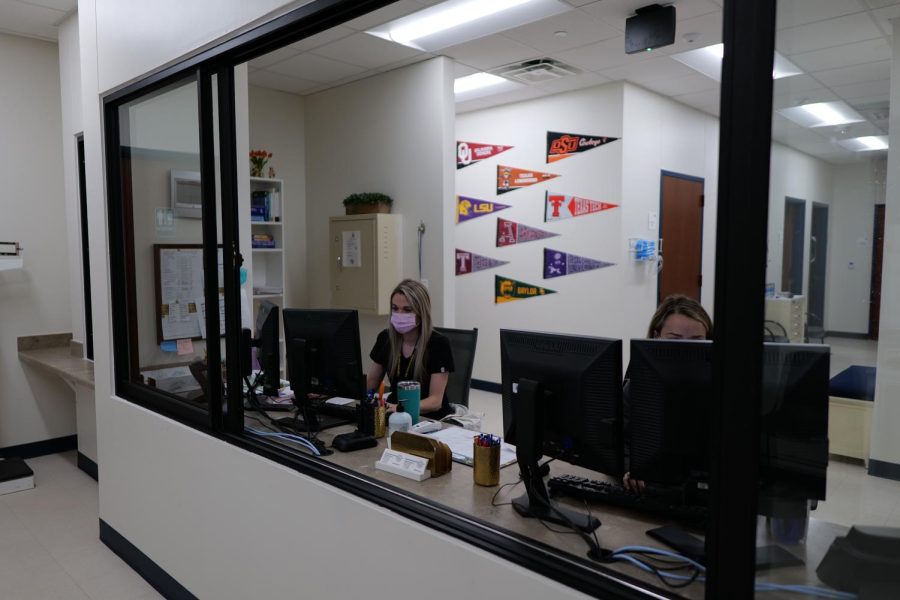Coronavirus cases have been rising in the school since the end of the winter holidays.
As of Jan. 18, there have been 195 new coronavirus cases in January among staff and students across the school according to the district COVID Dashboard. This doubles the previous three-week peak from Aug. 23 to Sept. 12, which had 97 new cases.
The rise in cases comes as a result of the latest confirmed variant, the omicron variant, which spreads more easily than the original coronavirus, according to the CDC. This holds true even if someone has no symptoms or has a breakthrough case, meaning they were vaccinated.
The increase in cases has meant more quarantining for faculty and students. School nurses Casey Hurlbutt and Mollie Brennan have utilized a new system for determining whether or not a student is safe to return to school in accordance with CDC recommendations.
“It would be after a five-day quarantine either from the time they showed symptoms or the positive test, whichever one came first,” Hurlbutt said. “They count that as day one. They’re out for five days, and they can return on the sixth day only if they are asymptomatic.”
Sophomore Jenna Bowen was symptomatic on Jan. 5 but disregarded it until her positive coronavirus test the following day.
“I had a sore throat, a stuffy and a runny nose: just normal allergy symptoms since I have seasonal allergies,” Bowen said.
When a student gets the coronavirus, they or their parents are responsible for notifying the school.
“I got tested at the doctor, and they had a doctor’s note for the school,” Bowen said. “My mom emailed the counselor, which the counselor let my teachers know. I also emailed my teachers and did all the work that I could that was assigned online from home, so that they knew that I was still doing work.”
If a student’s classmate tested positive, the school notifies parents and lets them know if their child develops symptoms, they need to stay home from school, get a test and contact the nurses if the test is positive.
“If they’ve been exposed by someone in the household, like a close contact, [and] they’ve been vaccinated within the past six months, technically, they can come back to school, but they need to just monitor themselves closely,” Brennan said. “If they haven’t been vaccinated within the past six months, then they would need to quarantine.”
However, when a staff member is exposed, the process is different.
“I tested positive on Jan. 11,” yoga teacher Emily Sanchez said. “I had to test because my husband tested positive the week before and the protocols state that if you are exposed, you have to test every other day to keep coming to work. I felt fine, but I went to test because of that protocol.”
Sanchez was well enough to work from home, but did still have work to make up.
“The only thing I didn’t feel caught up on were the things I needed to visually see. A lot of choreography and things I needed to do with Belles I hadn’t seen,” Sanchez said. “Normal class stuff was what I could work on from home.”
Because coronavirus symptoms range from sore throat, headaches, congestion and allergy-like symptoms to more severe symptoms like fever and aches, Brennan advises caution.
“If you think you might not be feeling well, just stay home because there’s no real way to know it’s the coronavirus or allergies unless you get a test,” she said.




